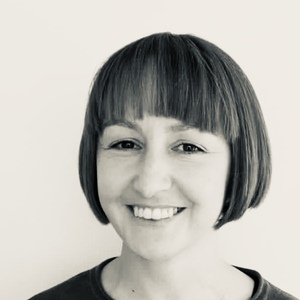You are viewing your 1 free article this month. Login to read more articles.
Investing in inclusion
Supporting diverse new talent requires real shifts in infrastructure and investment.
One of my favourite streams of work since I quit corporate publishing is helping new writers find agents. Sometimes I coach them, sometimes I work on their manuscript with them, sometimes I help them with their pitch.
None brought home the inequity that still exists in the industry more than a recent manuscript I worked on. The author, who has given her permission for me to talk about her work, came to me for help with a debut historical Gothic novel with fantasy and folklore elements. A strange, mystical tale that was unlike anything I’d read before. In a weird coincidence, it was a novel I’d read on its submission to the PRH WriteNow scheme, and loved. Since then, the author has worked on it for around four years. She’s sent it to agents and various schemes, got feedback, and worked on it again. But she still doesn’t have representation, or a publisher.
There are many reasons for this, but linking them all, I suspect, is her disability. Reading between the lines of her agent turn-downs is the fact that the story needs more editorial work. Intensive work that a quick read of a sample just can’t cover. Work she is capable of, but that is actually, as I have realised, a privilege to be able to do.
As I came to deliver my editorial feedback, I discovered something that I had completely missed before in my ignorance. This author’s disability informs her novel and makes it special, particularly as the protagonist has a similar condition. But it also makes her novel harder to write, in a quite literal sense: physically and mentally a harder slog than for any other writer I have worked with. On top of this she is economically disadvantaged, and has no connections in the literary world, so her writing time has been piecemeal and done in comparative isolation, guesswork much of the time, a battle against the unknown swirling worlds of market economics and publishing politics. This means that, without help, her story will be lost.
I am doing what I can for this author. But it shouldn’t be down to me, a freelance who isn’t yet doing more than making the bills each month. What this author needs is publishers
And that matters. Not because the author has a disability, or "deserves" to be read. But because in her story I see a gleaming kernel of originality and talent that I know readers will respond to and want to read more of. It will make money for the right publisher. If this author gets a readership, then other things will happen, along with her own life being enriched. Our understanding of the Georgian period in Bristol will be enlarged. Modern folk tradition will be expanded. Other authors who have a story in them will be encouraged. Readers will see themselves in the amazing protagonist. The world that every book adds to will be broadened, for readers now and in future generations.
I am doing what I can for this author. But it shouldn’t be down to me, a freelance who isn’t yet doing more than making the bills each month. What this author needs is publishers—the big, highly profitable ones—to keep investing. The bigger literary agencies too, whose income is tied most tightly to the success of their authors, and therefore should have the simplest motivation to put in the work.
It’s pretty simple, isn’t it? We seemed to think so a few years ago. At Penguin I was part of the team that founded WriteNow, and there were other schemes proliferating at other publishers. But although some such schemes continue, they seem more of a trimming than a centrepiece of the business. Much of the cost of the work, in my experience, is also shouldered by individual editors—often the same few—who give their own time in addition to already manic schedules, to mentor and advise the small number of writers who make it onto the schemes.
In this world where anyone with enough money can hire someone like me to polish their book and their pitch, or go on a five-grand writing course that turns their idea into the perfect commercial package, we have to face the fact that writing from economically disadvantaged communities may look less immediately appealing than its richer counterparts. We have to actively seek it out, and then be prepared to invest more in developing it.
Editors used to have the time to do this kind of intensive work, and many would still love to, but what I see now is an increasing reluctance to put in the hours—or years; why would you when some polished bestseller-in-the-making might be delivered to your inbox tomorrow? Your time is limited by the endless bureaucracy of business and the way to career progression is making money, quickly.
One idea I have heard mooted is to have an in-house team of editors—at publishing houses and agencies—who work only with authors who need the extra coaching. Another idea is advances for fiction writers on partial manuscripts, allowing economically disadvantaged people to take time off to write. We do it for non-fiction, but rarely for fiction. Meaningful investment like this will diversify our literary landscape and improve our understanding of the world. Infrastructure and investment. Whatever the solution, it is still needed, never more so, as the gap between rich and poor expands and raw creativity gets submerged by the stress of keeping a life together.
Working with this writer was a timely reminder for me of the joy of discovering talent. Unschooled, but, perhaps because of that, free to create something unique. It reminded me that helping authors like this hone their work for an audience is one of the most rewarding and important things we as publishing professionals can do.


















